But I Wore the Juice!

ON 19th April 1995 McArthur Wheeler, a 44 year old man from Pittsburgh, attempted to rob not one but two banks. Captured clearly by security cameras, wearing no mask, police were able to broadcast footage of him committing his crime on the local eleven o’clock news.
Within a hour an informant had contacted the police with Wheeler’s details. Arrested just after midnight, he was incredulous at being caught.
But I wore the juice
he said.
Wheeler told police he had rubbed lemon juice onto his face to make himself invisible to security cameras.
Wheeler knew that lemon juice is used as invisible ink – logically then it would make his face invisible to cameras. He tested this theory in advance, smearing juice on his face and taking a selfie with a polaroid camera. For reasons that remain unexplained, the camera gave him a blank image.
With his eyes stinging, this test event left him with sufficient confidence in his logic, ratified by science, to proceed with his plan.
Psychologists were fascinated by this story and decided to study it more deeply. They were interested to understand and learn more around his confidence – whether such delusions were unique to a few idiotic criminals or whether they were more common. Through a series of experiments, they demonstrated that the less competent an individual is at a specific task, the more likely they are to overestimate their self-appraised ability in relationship to that task.
This phenomenon is today known as the Dunning–Kruger effect[1]. Actor John Cleese concisely explains:
you have to be relatively intelligent to realise how stupid you are…
We may expect ignorance from incompetent amateurs but assume it doesn’t apply to us. Sociologist, Andrew Abott[2], is not so sure. In 2010 he examined research published in his own area of expertise and identified that those who should know better often overlooked vital or blindingly obvious points.
Similar principles have been identified in separate studies[3] of the adoption of both lean and total quality management. One found that across seven different sectors managers were ignorant of technical details and often adopted general rhetoric, implementing tools with enthusiasm, without firstly identifying the problems that they required solving. The other study similarly identified that ignorance raised unrealistic expectations; with leaders charging headlong into implementing new fads and fashions that they didn’t understand.
Whilst we’re buoyed by an ever-growing market adoption of modern methods of construction, we challenge our clients to ensure they are clear around their motivations and the outcomes they wish to realise. We’re not interested by what’s in vogue, but by what works.
MMC is an enabler, not an outcome.
We apply our knowledge and experience to support our clients and address information gaps.
Our advice addresses the market for lemons …..not squirting lemon juice on your face.
[1] Justin Kruger and David Dunning ‘Unskilled and unaware of it :how difficulties in recognising one’s own incompetence lead to inflated self-assessments’ Journal of Personality and Social Psychology
[2] Andrew Abbot, ‘Varieties of ignorance’, The American Sociologist [Note – case study highlighted via ‘The Stupidity Paradox – a brilliant book by Mats Alvesson and Andre Spicer]
[3] The rhetoric and reality of Lean: a multiple case study – Jostein Langstrand




